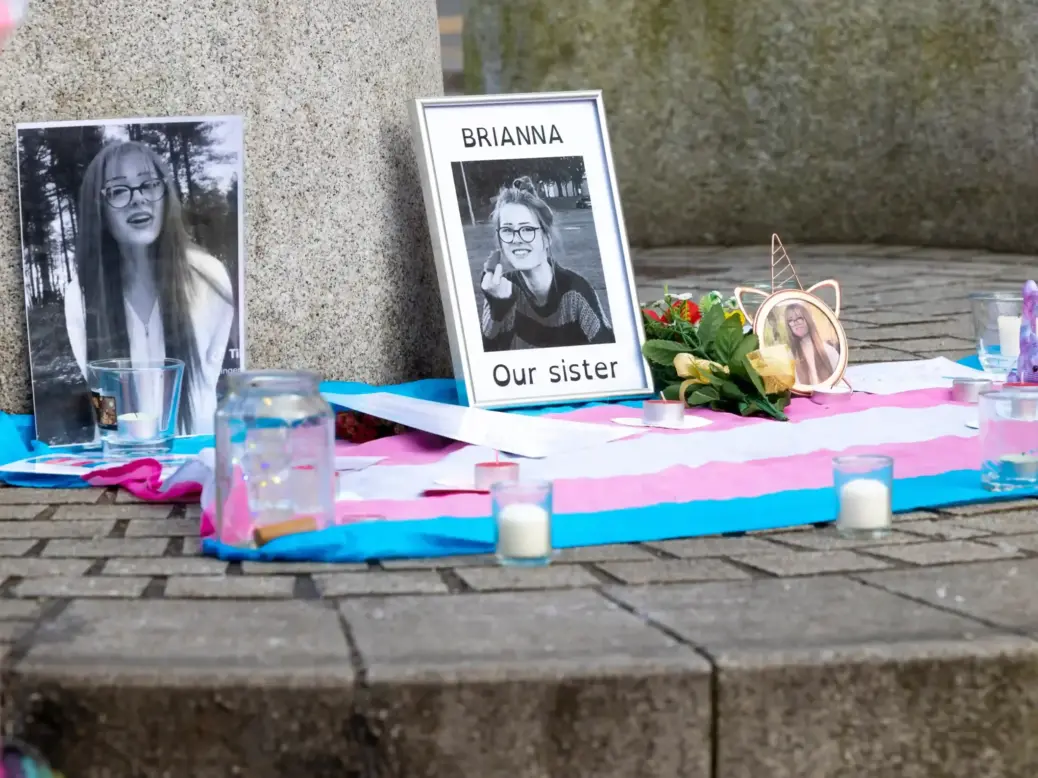
The teenage killers who murdered 16-year-old Brianna Ghey in Warrington a year ago have a right to anonymity but will be named in the media when they are sentenced on Friday.
Brianna’s killers were 15 when they committed the crime. The identities of under-18s caught up in criminal cases – whether as defendants, victims or witnesses – are normally kept secret so they are not stigmatised for the rest of their lives.
Judges typically impose orders under section 45 of the Youth Justice and Criminal Evidence Act 1999, restricting publication of any details that might lead to their names becoming known.
That has become more pressing as our written media has shifted online. Articles once quickly forgotten as tomorrow’s fish-and-chip paper are now forever just a Google search away.
That’s why other potential victims of Girl X and Boy Y highlighted in the trial will never be identified publicly.
But the right to anonymity for criminal defendants normally runs out at adulthood. In this case, Mrs Justice Yip decided to bring that forward.
Journalists applied for what is known as an “excepting direction” under section 45(5) of the 1999 Act.
This meant the judge had to perform a balancing exercise. On one hand, they considered welfare of the killers and their right to privacy under Article 8 of the European Convention on Human Rights, written into British law as the Human Rights Act 1998. On the other, the Article 10 rights of the media to freedom of expression, along with the broader public interest. It was the latter arguments that held sway.
On a practical level, the judge felt it would be better to get it over with and avoid a renewed surge of publicity on their 18th birthdays next year, so they can begin rehabilitation for when they are eventually released.
But where I feel the arguments to publish the names are even stronger is on open justice grounds.
Brianna was stabbed 28 times in broad daylight in a village park. She was transgender with tens of thousands of social media followers, and her death prompted global news coverage and tribute vigils, especially among the LGBT community.
Those factors helped make this crime so out of the ordinary that it’s important we know as much as we can about the factors involved, including the identities and backgrounds of the killers.
It’s also crucial to correct any misinformation that may spread locally or online and avoid anyone being wrongly identified as a murderer.
And in an era when institutions such as the courts, police and media already face declining public trust, any perception of a ‘cover up’ can attract intense criticism.
Open justice prevails
In some past cases, judges have upheld anonymity even after children have been found guilty of terrible crimes.
Following the ‘Snapchat torture murder’ of Hartlepool woman Angela Wrightson in 2014, her killers had their identities protected because the risk that one would take their own life was considered too great.
But although mental health issues affecting Brianna’s killers were a theme of the trial – with the male defendant unusually giving evidence through text replies following a diagnosis of selective mutism – they were not as severe as in the Wrightson case.
Therefore, I think this judge was right to decide open justice arguments overrode those concerns, although she did allow them and their families a few weeks to prepare.
Once their identities are known, the murderers will be notorious. Although such cases are extremely rare, it could be they are granted new, secret identities in future, as with other child murderers Jon Venables, Robert Thompson and Mary Bell.
That is a matter for the future, though. Given the planning that went into Brianna’s murder and the horrific way it was carried out, both defendants are likely to receive substantial sentences.
Email pged@pressgazette.co.uk to point out mistakes, provide story tips or send in a letter for publication on our "Letters Page" blog
